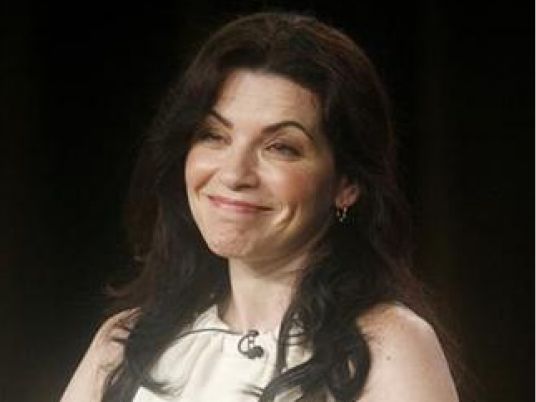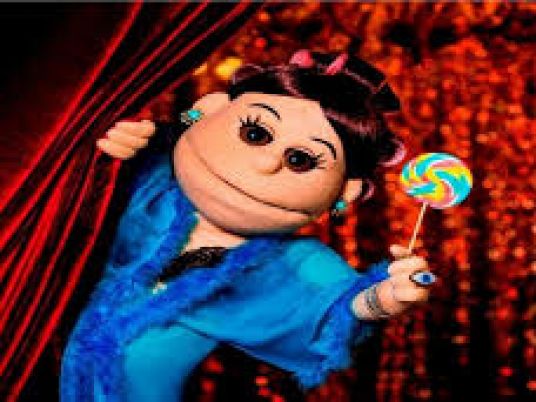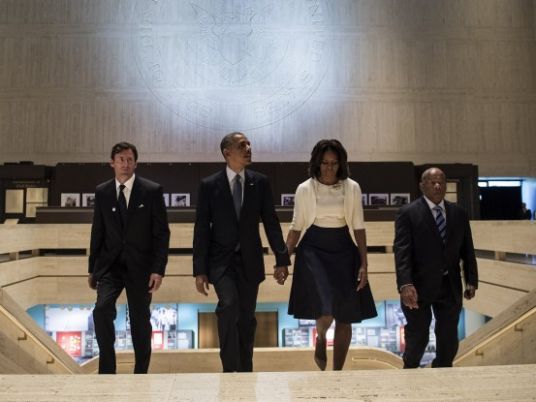With the global digital media boom over the last 20 years, American television and pop culture have become daily staples of the young and affluent’s diet throughout the urban world. In Egypt it is no different.
And despite such shows receiving much praise from viewers, a cultural barrier remains: at the end of the day, these shows – with their characters, lifestyles and idiosyncrasies – are still American, and don’t reflect the lives of average Egyptians.
In an attempt to capitalize on the popularity of American TV shows, many local producers and directors attempt to replicate the selling factors of certain shows while integrating aspects of Egyptian culture, hoping to broaden and strengthen local viewership.
A few examples are “Al-Bab fi al-Bab” (Door to door), “Lahazat Harigah” (Critical Moments) and the now-concluded “Tamer we Shawkeya” (Tamer and Shawkeya). The three are adaptations of “Everybody Loves Raymond,” “ER,” and “Dharma and Greg,” respectively. But, save for “Al-Bab fi al-Bab,” whose production and execution is openly marketed as an adaptation, makers are often extremely sensitive about the suggested comparison.
It’s still interesting to investigate, through the eyes of actors and producers, what makes a TV show Egyptian.
“When adapting American television, it’s important to see the original character through its universal qualities,” says Ahmed al-Sharkawy, the producer of “Al-Bab fi al-Bab” at Sony Pictures Television Arabia. “Once this is done, it becomes relatively easy.”
“Universal qualities, such as individual existentialism, inter-family relationships and class struggles, do not change,” he continues. “What does change is the approach to these qualities, the way they are dealt with, expressed and addressed.”
Sharkawy went on to explain that adapting Raymond Barone – the passive thirty-something stuck between his mother and wife in "Everybody Loves Raymond" – as Hesham Khalil Fath al-Bab was simple. What needed to be reworked was the expression of the superficial character qualities.
“The American Raymond is a bit too cool, relaxed and underplayed for Egyptian audiences,” says Sherif Salama, the actor who plays Hesham. “The Egyptian audience would find him boring or too quiet for the main character, so it was a matter of making him more dominant, observant and intelligent.”
Sharkawy admits that the home in “Al-Bab fi al-Bab” resembles American rather than Egyptian homes, yet explains that “TV is not expected to be the same as reality – at the end of the day, what people relate to are the characters, their development and interactions.”
With “Tamer we Shawkeya,” the Egyptian kin of “Dharma and Greg,” actress Engy Wegdan, who played Tamer’s sister, confirmed a similar adaptation.
“College kids who are self-involved with their personal and professional lives are nothing unique to the US,” she says. “But for example, whereas Greg’s family are wealthy and Dharma’s are hippies, Tamer’s family is high class while Shawkeya’s are nouveau rich – same idea, but with altered idiosyncrasies.”
With “Lahazat Harigah,” director Ahmed Saleh said that the comparison with ER is made only because both shows have a similar medical format. What makes “Lahazat Harigah” appealing, though, has little to do with the similarities and more with the original work of the local team.
However, it remains hard to ignore the striking resemblance between George Clooney and his Lebanese counterpart, Ammar Chalak, as they handle emergencies from behind their surgical masks.
So far, adaptations of these TV shows have been met with much success, especially among viewers who are less familiar with the American counterparts. But despite producers claiming that they only alter cultural aspects while sticking to universal formats, various “universal” aspects of the shows have been met with viewer aggravation.
“Nowhere in Cairo have I seen a house that looks anything like Hesham’s [Al-Bab fi al-Bab],” comments a YouTube user called Mostafa Khalil under a clip of the show. “Are Egyptian houses not good for TV [shows] anymore?”
Others express more serious views.
“Sure, it’s an Egyptian medical drama, which is a good idea, but the quality and attitude of the emergency room is insulting to me,” writes a viewer called Nasser Alaa on the "Lahazat Harigah" website. “Why don’t they fix our hospitals, educate our surgeons and liberalize our society in real life first?”
Positive reviews generally argue that adapting American sitcoms has increased Egyptians’ access to higher quality TV shows which, despite being contextually imitated, deal with real life situations and issues.
But to others, this method of improving Egyptian TV through adaptation is damaging the integrity of the local industry and its much famed past; it’s destroying the intrinsic Egyptian-ness of TV shows.
“It’s degrading to our real culture,” writes a commentator called Khaled Reda in an online forum on soap operas aired during Ramadan. “It might be bringing joy and entertainment into people’s households, but Egypt is supposed to be an artistic pioneer in the film industry. Imitating ‘formats,’ or anything for that matter, solidifies our status as a B-class film/TV country.”




